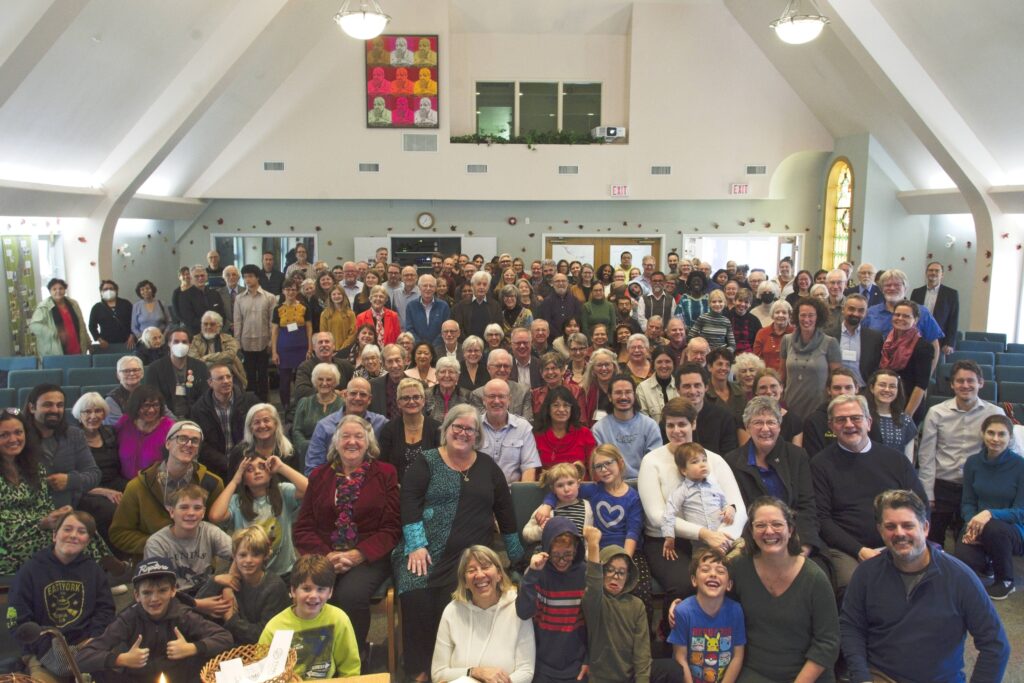TUMC is an inclusive, intergenerational Anabaptist-Mennonite community of faith united in a call and desire to follow Jesus in life. We believe that God’s love is for everyone.
For us, being Christians calls us towards a pattern of building community, ethical living, compassionate action, and striving for justice. We are committed to being guided by the Holy Spirit and discerning together what it means to follow Jesus in our context. We value the Bible and interpret it together in light of today’s issues. We share the Anabaptist-Mennonite peace church tradition, understanding the Bible through Jesus’ way of peace and justice.

Toronto United Mennonite church welcomes people of all ethnicities, gender identities, sexual orientations, faith backgrounds, physical capacities and other gifts. We gather in community to worship God, to support each other in life’s joys and sorrows and to encourage each other towards faith and hope in a broken world. We currently differ from the some parts of the historical Mennonite church in being affirming of LGBTQ+ identities, families and individuals. Our various cultural, theological and life experiences help to shape our congregation. When we encounter disagreement, we seek to practice hospitality.
As an urban church our congregation is made up of people who come from a broad range of cultural and geographical origins, theological perspectives and experiences. Valuing ecumenical and intercultural wisdom, we grow towards God’s vision of unity in diversity. We are also grateful to be part of a global Anabaptist community of more than 2 million.
Worship is central to our congregation. We sing together, we share our joys and concerns in prayer, we value preaching by a diverse team, and we aim to include all ages in our worship. We practice giving our time and resources. We want to share a meaningful experience of worship with people in the building and gathered online.
Children and youth are a significant part of our church. We are a congregation with an active children and youth ministry. Other age groups gather in a variety of settings to connect, pray, exchange ideas, and wrestle with our theological differences. We are intentional about ongoing faith formation throughout life.
We see our service as faith in action, and it shapes our community. Our congregation’s activities are sustained by the contributions of many volunteers. Our ongoing mission and service goals include refugee settlement, LGBTQ+ inclusion, Indigenous solidarity and neighbourhood engagement.
Whatever you bring, you are welcome here.
